People Are Ignored In Government’s Decisions in Iran – Lawmaker
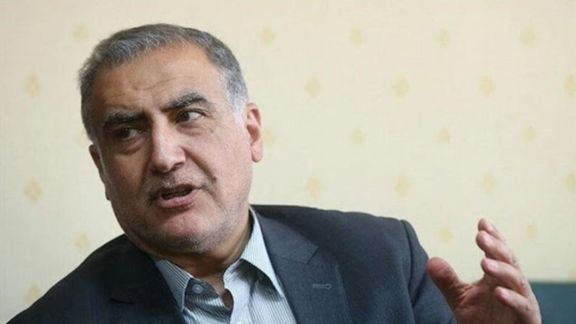
An Iranian lawmaker says the Islamic Republic’s model of governance has created conditions where the people are ignored.

An Iranian lawmaker says the Islamic Republic’s model of governance has created conditions where the people are ignored.
Ahmad Alirezabeighi, the representative of Tabriz in the parliament, said in an interview on Monday that “it is natural that dissatisfaction increases among people because our policies and strategies are carried out by ignoring the people."
Criticizing the government’s decision to scrap the subsidy for essential food and medicines, despite warnings of more inflation and hardship, he said, “Currently, where are our people in the economic equation?” People should be central in the decisions of the country, he noted.
Alirezabeighi, a conservative retired police officer who served as the governor of East Azarbaijan province under former president Mahmoud Ahmadinejad, added that the problem in Iran is not nuclear negotiations adding that past experience shows that “our problem is ignoring people.”
He said that in negotiations if a government does not enjoy the support of its people, it will have to give in to the pressure of foreigners.
“Many think that the solution to our economic problems depends on the [revival of] the Joint Comprehensive Plan of Action (JCPOA). The past eight years of Rouhani's government showed that the JCPOA cannot be effective in this regard,” he added.
Alirezabeighi also said that Iran’s interactions with Russia and China should be based on the country’s interests, referring to criticisms over the Islamic Republic’s a 25-year cooperation agreement with China and a proposed 20-year deal with Russia.
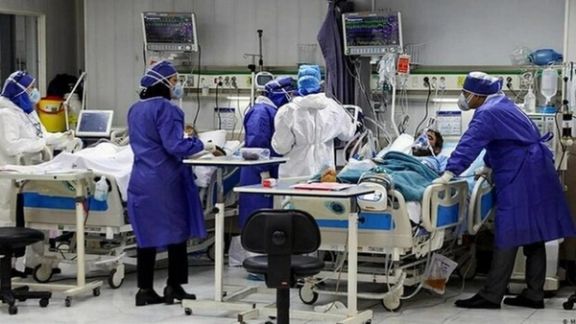
While cholera is spreading in western Iran there are reports of deadly outbreaks of the disease in Afghanistan and Iraq, raising concerns of a regional pandemic.
According to the Kurdistan University of Medical Sciences on Monday, the number of cholera patients in the province has reached 39, most of which are reported in the city of Marivan located at the border with Iraq.
The university’s public relations manager, Bahram Kandai, said the outbreak has not caused any fatalities in the province yet.
Earlier in the week, Kermanshah University of Medical Sciences confirmed that at least eight people have contracted the disease.
The cholera outbreak in Iraq was officially confirmed by the country’s health ministry in June, with infections were mostly concentrated in Kirkuk and Sulaimaniyah, in the autonomous Kurdistan region. The current number of cases is at least 160.
On July 10, health officials in Afghanistan's Helmand province said that 20 people died in the previous 24 hours of cholera and a further 120 were infected.
Late in June, The UN humanitarian office (OCHA) said preparations were underway to avoid a cholera outbreak in Afghanistan after the country’s deadliest earthquake in two decades, saying that half a million cases of acute, watery diarrhea had already been reported. "Cholera outbreaks in the aftermath of earthquakes are of particular and serious concern," OCHA said in a statement.
The acute diarrheal illness is caused by infection of the intestine with Vibrio cholerae bacteria, when people swallow food or water contaminated with the cholera bacteria.
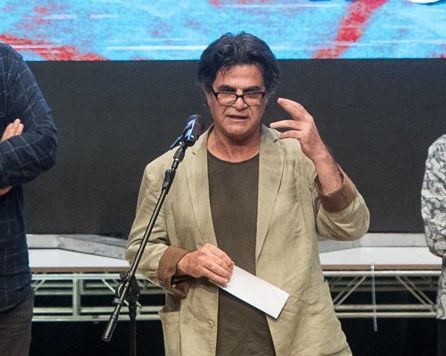
Award-winning Iranian film director Jafar Panahi was arrested Monday as he was protesting the detention of two other moviemakers at Tehran’s Evin prison.
Unconfirmed social media reports said that Panahi, along with several other Iranian filmmakers, was at the prosecutor’s office of the prison and was detained there. There are other reports that said they were holding a protest in front of the prison for the release of Mohammad Rasoulof and Mostafa Alehahmad when security forces arrested him.
More than 300 figures of the country’s film industry have signed a statement calling for their release. The Berlinale, the European Film Academy and the International Coalition for Filmmakers at Risk have also spoken out against their arrest.
Panahi, who has won numerous awards, including the Golden Leopard at Locarno Festival, the Golden Lion in Venice, and the Silver Bear at the Berlinale, was once arrested in March 2010 and later charged with propaganda against the regime.
Rasoulof – another prominent filmmaker with several international awards such as the Golden Bear – and Alehahmad – who is known in international film galas for his short works -- were arrested July 8 as part of the Iranian crackdown on the signatories of a collective statement titled “Lay down the gun” issued by more than 100 film industry personalities in the end of May.
The statement called on military and security forces who “have become tools for cracking down on the people,” not to suppress protesters during a wave of protests across Iran that were triggered when a 10-story building collapsed in Abadan, leaving at least 37 people dead and dozens missing.
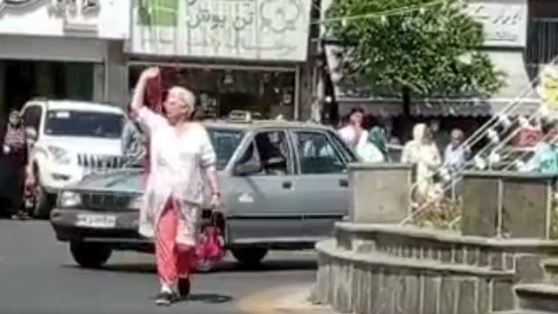
Amid Iran’s a hash crackdown on ‘bad-hijab women’ and a growing resistance, a woman in northern Iran removed her headscarf in public but people did not allow police to arrest her.
The middle-aged woman waved her headscarf as she was walking in a main square of the city of Tonekabon – formerly known as Shahsavar -- in Mazandaran province, shouting “freedom” and police forces sought to detain her by force as she was screaming “do not touch me!”
In a rare scene in Iran where people are normally afraid of law enforcement forces, citizens of the city gathered around the police car, immobilized it, and released the woman.
Authorities this year named the 12th of July as Hijab and Chastity Day and are planning state-sponsored rallies at stadiums and other places to promote the Islamic notion of the hijab (cover) for women. On the same day, women activists have their own plans to protest by taking off their hijab.
The Islamic Republic has launched an extensive campaign this year against women they call ‘bad-hijab’. In addition to arrests by the ‘morality police’ on the streets, some officials have ordered extra measures, including to government offices, banks, and public transportation to withhold service to ‘bad-hijab’ women.
The so-called morality police have also started patrolling medical and academic centers in some cities to enforce compliance with the Islamic dress code.
President Ebrahim Raisi on July 6 called lack of compliance with hijab rules “an organized promotion of [moral] corruption in Islamic society.”
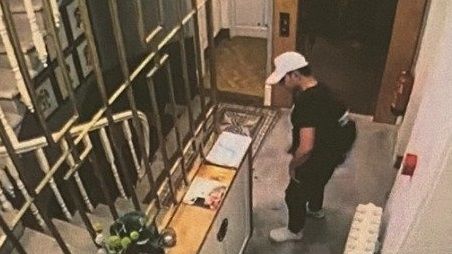
Turkey was aware that a team of Iranian agents had entered the country in June to assassinate Israelis, before they were arrested, a local newspaper reported.
Turkish-language Sabah Daily published more details on Sunday about the Iranian plot three weeks after Turkey’s security agencies nabbed 8 Iranian nationals in three different locations in Istanbul.
The agents, Sabah says, were allegedly sent by a unit of Iran’s Revolutionary Guard (IRGC), apparently to avenge a mysterious series of killings and deaths among its personnel in Iran in May and early June. Iranian blamed Israel for the incidents, as it became more apparent that it had penetrated various domains of government institutions.
Since July 2020, a series of spectacular attacks began against Iran’s well-defended nuclear and weapons development sites, as well as key individuals, such as top nuclear official Mohsen Fakhrizadeh in November 2020. Hackings, mysterious fires, sinking of ships disruption of infrastructure continued until the daylight assassination of a key official of Colonel Hassan Sayyad-Khodaei on May 22 in Tehran. The man was reportedly the commander of a secretive unit tasked with terror operations abroad. The Iranian president Ebrahim Raisi immediately vowed revenge.
It is not clear exactly when and how the Iranian agents entered Turkey and congregated in Istanbul. Some might have been members of a ‘sleeping cell’. But Sabah reports that some checked into the same hotel where Israel’s former Consul General in Istanbul, Yosef Levi Sfari and a group of tourists from Israel were staying.
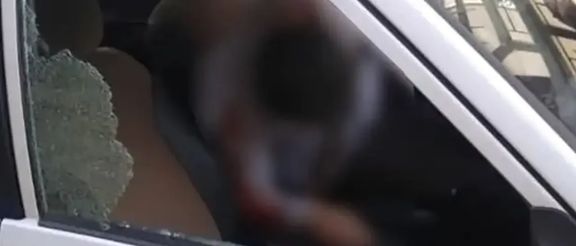
Being aware of a dangerous situation developing, Turkish authorities quietly moved the Israelis to another hotel, Sabah said, but Israeli media at the time spoke of close coordination between Israeli and Turkish security.
In fact, Israel might have been the one that tipped off Turkish intelligence about the Iranian plot. In late May, Israel warned its citizens to stay away from Istanbul and the warning was repeated in the first two weeks of June. By mid-June, the news about the foiled Iranian plot emerged in Israeli media, that also claimed Ankara had warned Tehran not to conduct any such operations on its soil, but it has so far not publicly accused Iran of planning terror attacks.
However, a planned visit by Iranian foreign minister Hossein Amir-Abdollahian was postponed in mid-June amid widespread speculations that the cancellation was related the ongoing controversy over the terror plot. He eventually visited Ankara in late June, meeting with a sombre-faced Recep Tayyip Erdogan, the president of Turkey.
Sabah’s report says that Turkish security found three handguns with the arrested Iranian team, equipped with silencers, and published a photo of the weapons and ammunition, which can indicate Turkish police shared case material with the newspaper.
On Sunday, Israeli Prime Minister Yair Lapid spoke with Erdogan over the phone and reportedly thanked him for the close cooperation over derailing the Iranian plot.
Iran has dismissed the accusation of initiating a terror plan and has said the reports are Israeli fabrications to harm its ties with Turkey.
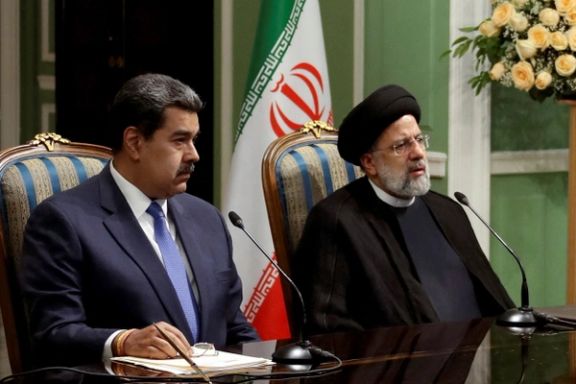
An Iranian official says that Venezuela has agreed to provide one million hectares of agricultural land for Iran’s overseas cultivation projects to secure food.
Announcing the agreement last week, Ali Rezvanizadeh said Venezuela can provide a better opportunity than Brazil and Russia for Iran’s overseas agricultural projects, including growing crops of soy beans and corn.
Tehran and Caracas last month announced a 20-year cooperation plan in the fields of oil, refining, petrochemicals, defense, tourism and culture, and agriculture during President Nikolas Maduro’s visit to Iran.
Details of the agricultural agreement have not been announced and it is not clear whether Caracas has agreed to the investment of the Iranian government or its private sector.
Masoud Daneshmand, former chairman of Iran Economy House, a private sector think tank, however, says Iranian investment in production of crops such as corn and soya beans in Venezuela is not economically viable due to the very long distance between the two countries and the high cost of transportation.
Experts say the biggest advantage of overseas cultivation for Iran is preserving its precious water resources. Iran’s agriculture uses around 85 percent of all available water resources. It would also potentially contribute to the country’s food secuirty, a great concern of Supreme Leader Ali Khamenei who has been an ardent promoter of agricultural self-sufficiency over the past three decades.
"Although there is shortage of water, God willing, the same amount of rainfall that our country has will be enough for [producing enough] to feed a population four times bigger than its current population and to make the country need less from others," he said in a speech in October 2000. In two other speeches in July and August 2001, Khamenei argued that self-sufficiency in basic products such as wheat and rice should be the main goal in agriculture.
Although Iran produces a wide variety of agricultural products, the sector has been battling with serious drought and inadequate water resources for years which has given rise to water tension in some areas.
According to Rezvanizadeh, Iran requires 7 million hectares of overseas agricultural land to ensure its food security, but Iranian investments have been on a much smaller scale so far.
The private sector investors are mainly driven by higher profit margins in their overseas cultivation projects. According to Rezanizadeh, of the 30 million tons of all agricultural products imported, only 7 percent comes from overseas cultivation projects. This includes investment in crops such as bananas and other exotic fruit which have a much higher profit margin than strategic crops such as wheat, corn, rice, and oilseeds.
Iran imports around 90 percent of all oilseeds such as rapeseed and soya beans and around 30 percent of the rice used in the country. The country is also a huge importer of corn and barley for animal feed.
Investment in overseas agricultural projects also requires financial measures such as bartering agreements to circumvent the obstacles in international banking resulting from US sanctions.
Some other countries, officials say, have agreed to provide agricultural land for Iranian projects on a much smaller scale. Russia recently offered to provide 100,000 hectares of for Iran’s projects, the official news agency (IRNA) reported Sunday. The report said this is only around 0.8 percent of all land under cultivation in Iran (12 million hectares).
The United States and China are among the countries with the most extensive overseas agricultural production. Iran’s southern neighbors, the United Arab Emirates and Saudi Arabia, have also invested heavily in agriculture in Africa and some Asian countries in the past decade.